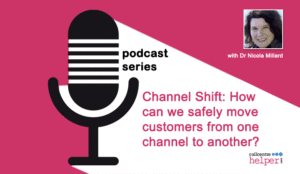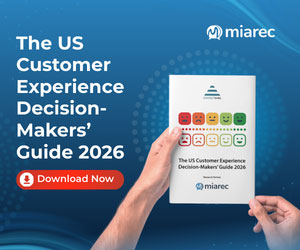Channel selling is one of the most effective growth strategies there is.
It can unlock access to new revenue streams, greater brand influence, and business opportunities that were previously out of reach.
And that’s true for both business telecoms vendors and resellers themselves.
There are many different forms of channel partnerships and sales strategies out there, but if you want to create a channel strategy that really transforms your sales output, there are 8 things you need.
Read on to find out what these are…
Looking for a general overview of channel sales before you dive in? We’ve got a complete guide for you here
1. Clearly Defined Goals
A channel sales strategy is like any marketing or sales activity.
You need to know exactly what you want out of it first.
After all, if you don’t have a concrete idea of what success looks like, how can you know if what you’ve done has been successful?
Think about what it is you want to achieve out of a channel partner programme.
Then, do some research into the different channel sales dynamics, and think about which ones will help you work towards your goal.
2. An Ideal Partner Profile
Once you have a clear idea of what success looks like, you need a clear idea of what the right partner looks like too.
Take some time to create “partner profile” documents.
These are documents that identify the different types of partners you want to work with, based on the characteristics that make them a partner worth having – think of them like Top Trumps cards.
These profiles can then inform your recruitment processes, allowing you to set the baseline requirements a channel partner should meet before you bring them on board.
These requirements could be…
- Access to a particular market or region
- A sales process that aligns with yours
- Size of sales team
- Annual turnover.
You get the idea, there are lots of different traits you can identify. The more detailed and the more specific you can be here, the better.
3. A Clear and Effective Recruitment Process
Throughout several editions of the State of Partnering report, a common complaint from channel partners has been that partner programs are too complex – so vendors, take note.
Make things as clear and as simple as possible for your partners.
Do you have a partner application portal? Make it intuitive.
Minimise the amount of steps it takes, and get rid of any parts someone could get stuck on, or confused by.
In those first conversations with a potential partner, let them know what’s expected of them, and how the relationship will work.
Then, once they make it past a certain point in the qualification process, why not show them the partner agreement?
That way, they know exactly who is responsible for what, and it’s on paper for reference.
Finally, if an applicant goes quiet, have a follow-up process.
It’s a perfect opportunity to show partners how you will support them before they’ve even begun to work with you.
And, it can make a serious difference in the number of completed applications.
4. Help with the First Sale
Once you’ve onboarded a new channel partner, use your available resources to help them close their first sale.
This is crucial to building up that first bit of momentum and setting your channel strategy up for long-term growth.
This could mean anything from writing up an intro email for potential customers, to prepping them for a sales call, to putting them in touch with a qualified lead of yours.
Securing that first win will massively help to establish sales momentum, while building strong foundations for a prosperous working relationship that lasts.
5. Marketing Support
The most successful channel strategies work by giving partner sellers a wealth of resources to support their marketing.
Funding, pre-made campaign materials, sales collateral, social media campaign assets, case studies, statistics…
These are all a good start, but if you can go even further, the results will benefit you both.
Don’t just offer your partners resources – offer them one-to-one support from your marketing experts.
Lend them your expertise, and show them things that have worked for you in the past – tips on promotion strategies, how to write an effective sales email, the best times to post on social etc.
Things that might seem plainly obvious to your marketing team could be game-changing insights for your channel partners.
6. Close Collaboration
A combination of close communication and collaboration is vital to getting the most out of your channel selling efforts.
The best partner programmes supply a dedicated account manager to each partner.
Someone who checks in with them on a consistent basis, to see how they’re doing and identify ways to offer support.
If your channel partners feel trusted and cared for, they’ll feel more comfortable coming to you when something isn’t right.
That means problems will get solved quicker, and there will be a more fluid transfer of information between the two of you.
In the long run, this all equates to a better and more profitable working relationship – so prioritise communication and collaboration from the start.
7. Sales Enablement
Channel partners are an extension of your sales team, so you should enable and incentivise them – just like you would your sales team.
As well as offering commissions on sales, and rewards for hitting certain targets, another great way to incentivise your channel sellers is with some in-depth performance analysis.
Offer them regular ongoing reporting, breaking down the figures on how they’re doing across sales, customer satisfaction, operational costs etc. – any areas you think are relevant.
Be sure to provide clear metrics on what they’re doing well, what could be improved, and if you can, some practical guidance on how to make those improvements happen.
And remember what we mentioned above about having a dedicated account manager? That can apply here too.
When it comes to helping your channel partners through the sales process, look to provide support at every step of the process – from closing the deal, to onboarding, even to the months after the sale has been made.
8. A Strong Partner Programme
There’s one thing that ties together all of the points made above:-
A Strong Partner Programme
The key to channel selling success ultimately lies in empowering channel sellers as fully as possible.
That means providing multiple avenues of support – from the recruitment process, right through to promotion, lead generation, marketing and sales.
Giving sellers all the tools they could need to sell leading edge systems, expand into new markets and regions, and succeed within competitive markets, such as VoIP reselling.
Every programme is different, but these are some additional characteristics of a strong programme:-
Technical Support
Often channel sellers don’t have the same technical knowledge and capabilities as their parent companies.
A good partner programme will supply this should it be needed to close the deal with an end customer.
Upskilling and Training Opportunities
A strong partner programme is designed to nurture those within it.
Training and upskilling enables channel sellers to develop their understanding of what they’re selling, and improve in other areas such as marketing, customer service, or sales.
A Choice of Business Model
Different businesses work in different ways. A strong programme will allow its partners the choice of model that works best for them – whether that’s wholesale or commission.
Access to a Wider Partner Community
Channel sellers can learn a lot from those around them, as well as their parent company. The best partner programmes recognise the value in building and supporting a connected community of partners.
8 Things You Need for a Successful Channel Strategy: Key Takeaways
So, if you want to establish a successful channel strategy, make sure you’re working from a strong foundation.
And that’s a foundation built on these 8 things:-
- Clearly defined goals
- An ideal partner profile
- A clear and effective recruitment process
- Help with the first sale
- Marketing support
- Close collaboration
- Sales enablement
- A strong partner programme
Author: Guest Author
Published On: 11th Aug 2022
Read more about - Guest Blogs, NFON




































